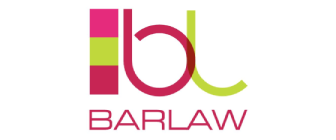Giovana Palacios and Adriana Barrera of BARLAW-Barrera & Asociados analyse the changes implemented by Legislative Decree No 1391. These include amendments related to infringement penalties, collective management organisations and administrative procedures at the IP offices.
On September 5 2018, Legislative Decree No 1391 was published in the official gazette El Peruano to simplify the procedures concerning unfair competition, copyright law and the law of the artist and performers which are processed by the National Institute for the Defense of Free Competition and the Protection of Intellectual Property (INDECOPI) and specify the competences, regulations and functions of INDECOPI.
INDECOPI was founded in 1952 with the aim of promoting the proper functioning of the market, for the benefit of citizens, consumers and businessmen. It was designed to do this through the defence of consumers, the prevention and control of practices which restrict free and fair competition and the protection of intellectual property in Peru. As a result, as part of its functions, it has promoted the issuing of Legislative Decree No 1391 to continue moving forward with the simplification of procedures, making them increasingly beneficial for citizens.
Evidence period and penalty payments
One of the most significant changes introduced by the Legislative Decree No 1391 connected to unfair competition is the elimination of a minimum term for the evidence period, which was previously 30 business days. The aim of this change is to obtain a pronouncement from the authority more quickly, since once all the evidence has been gathered, the evidence period can be concluded.
Another change is the range of penalty payments. It is now equivalent to one tributary tax unit at the least and 10 tributary tax units at the most. In that sense, an infringer can receive a penalty of approximately almost USD13,830, in cases where they persist in breaching the fine imposed by the IP Office. This is to prevent infringers continuing with acts of unfair competition.
Copyright collectives and the Copyright Office
The amendments also seek to streamline the resolution of cases on copyright and the consolidation of copyright collectives, strengthening their composition and administration, as well as the right of their associates to occupy positions of representation within them.
Now, the decision authorising the operation of a copyright collective will be published in the official gazette El Peruano and on the INDECOPI website, so that citizens have easy access to this information. The modifications will also allow citizens to know the repertoire that the copyright collective administers through the central headquarters of the company and also, through its website and/or its other dependent bodies nationwide.
The regulation strengthens the powers of the Copyright Office, specifying its power to analyse cases when a copyright collective does not apply its rates according to its own tariff regulation. The Office can file this procedure ex officio.
Administrative procedures
Another important change at the procedural level is that the maximum term for processing administrative procedures, including infringement actions, will be 120 working days, which guarantees a quicker but regulated solution to disputes.
The terms for administrative procedures have changed. For example, the term for citizens to file appeals in reference to cases processed before the Copyright Office has been increased, in accordance with the provisions of the General Administrative Procedure Law. Furthermore, the period for replying to the appeal is the same as for the appeal, which is 15 working days.
As in other offices, now, the Copyright Office can suspend procedures (a) if, prior to the start of the administrative procedure, a judicial procedure about the same matter has begun, or (b) when, if a dispute arises or not, in the opinion of the respective competent authority, requires a prior judgment.
Artists and performers
Further modifications to the law on artists and Performers are incorporated, which improve the definitions of the artist and say that the applicable sanctions in cases of infringement of the law will be those established in copyright law.
Dissemination of information
Finally, the offices of INDECOPI are empowered to arrange the dissemination of information, if it has social relevance and does not constitute a violation of trade or industrial secrets. The aim of this change is to keep citizens informed about what happens in the market, from the artistic sphere to the business environment.
In light of the above, INDECOPI is undergoing amendments in order to enhance the IP field, becoming faster and easier to predict from citizens’ perspective. It is expected that INDECOPI will issue more modifications in the near future to continue its work to modernise its competencies and functions related to intellectual property and competition law. Only time will tell whether the goal of the amendments concerning the simplification of administrative procedures by INDECOPI will be achieved.
A table detailing the changes can be found here.
Authors

Adriana Barrera

Giovana Palacios
A table detailing the changes can be found here.
Authors

Adriana Barrera

Giovana Palacios


